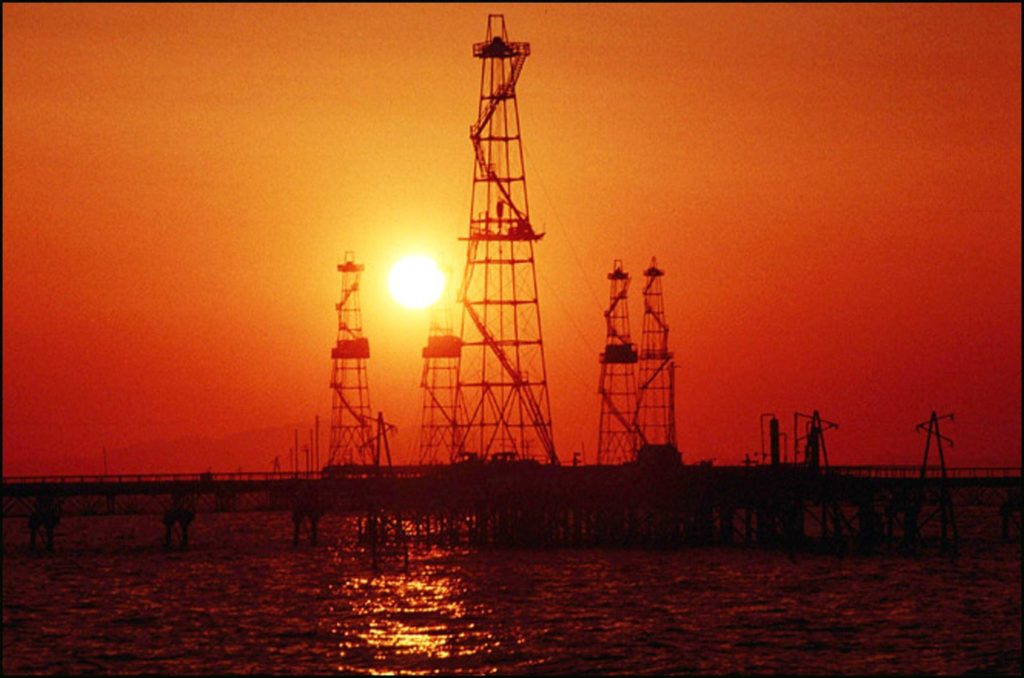BAKU
Azerbaijan reduced the amount of oil it shipped to Turkey through the Baku-Tbilisi-Ceyhan pipeline in the first eight months of this year due to shrinking resources in the main Azeri-Chirag-Guneshli (ACG) oilfields and the COVID-19 pandemic’s impact on demand and production.
The quantity of oil shipped through Georgia to Turkey declined to 132.6 million barrels from January to August this year, down from 146.8 million barrels in the same period last year, Botas, Turkey’s petroleum pipeline corporation, said.
Most of Azerbaijan’s oil is produced at the giant off-shore ACG oilfields, through a BP-led consortium in which Azerbaijan’s state energy firm SOCAR is a shareholder. ACG has been under development since 1997.
Measures to contain the spread of the COVID-19 pandemic that took hold last year, impacting mobility and production across the world, have significantly affected global demand for oil, forcing oil producers to eventually cut their production levels.
Total oil and gas condensate production declined 2.6 percent from January to July from a year earlier to 20.096 million tonnes. BP said that oil output at its projects in Azerbaijan declined to 468,000 barrels per day (bpd) in the first half of 2021 from 498,000 bpd a year earlier.
Azerbaijan exports oil via the BTC pipeline as well as via Georgia by rail, through the Baku-Supsa pipeline and via Russia through the Baku-Novorossiisk pipeline. Azerbaijan has pumped oil through the 1,330-km pipeline from the capital Baku to Novorossiisk, a port on Russia’s Black Sea coast, since 1997.
Meanwhile, oil shipments to Russia are rising again this year after being interrupted due to pipeline maintenance in 2020.
Azerbaijan shipped 583,029 tonnes of oil via Russia in January-July, up from 30,000 tonnes shipped in the same period last year, Russia’s Central Dispatch Office of the Fuel and Energy Complex, said in a report.
In July this year, oil shipments totalled 84,074 tonnes, it said.
SOCAR stopped supplies to Novorossiisk in March 2019, citing planned maintenance on the Baku-Novorossiisk pipeline. The company diverted crude flows to its own Baku-Tbilisi-Ceyhan pipeline after the suspension of transit via Russia. Shipments resumed on July 15 last year and the total transit of oil from Azerbaijan via Russia amounted to 613,029 tonnes in 2020.
Shipments were suspended again in January 2021, but SOCAR had signed a contract with Russian oil pipeline operator Transneft to transport more than one million tonnes of oil through the Baku-Novorossiisk pipeline this year.
SOCAR said in March it had planned to boost its oil transit via Russia by 1.8 times year-on-year in 2021. The rise in shipments this year is explained by the absence of supplies in the first six months of 2020.
In August, SOCAR submitted an application to the Russian oil pipeline operator Transneft to transport 1.209 million tonnes of oil via Russia in 2022, up from 1.09 million tonnes that is planned to be shipped this year.

